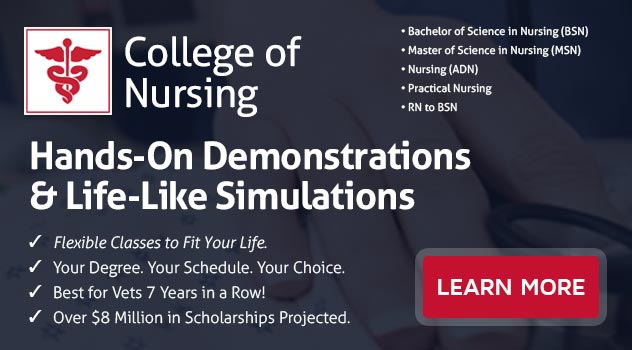Things You Learn in Nursing School that You Will Use as a Nurse
Nurses typically say their work is more of a calling than a job. Even if you feel called to this noble profession, you will still need some education. So what are some of the skills taught in nursing schools? How do nurses use these skills in their daily duties? How does a formal education benefit an aspiring nurse?
Skills and Knowledge Obtained in a Formal Nursing Program
The goal of any nursing program is to prepare students to assist doctors and allied health professionals in providing care to patients. Specific program content may vary slightly. However, all accredited nursing programs help future professionals conform to the American Nurses Association’s standards and principles. These include:
- Documentation procedures that safeguard patient data while keeping it organized and accessible to authorized parties.
- Proper delegation of duties to unlicensed nursing support staff to increase the quality of care.
- Steps to control the patient’s environment in order to reduce the chances of infection and to improve all levels of care.
- Encouraging collaborative efforts between professionals to improve patient outcomes.
Nursing students learn to apply theoretical understanding to their daily work. In this way, students become better nurses.
In addition to principles and theories, nursing students learn how to provide direct services to their patients by:
- Measuring and recording vital signs.
- Obtaining data to help the doctor make a diagnosis.
- Cleaning and sterilizing multi-use equipment and tools.
- Helping patients understand aftercare and medication instructions.
How Education Helps Nurses in Their Daily Duties
What practical skills do future nurses learn in an accredited program?
- Anatomy and physiology courses help nurses understand the biological basis of the illnesses and injuries.
- Medical terminology instruction makes it easier for nurses to communicate efficiently with other medical staff.
- Psychology courses are a vital part of learning how to communicate with a variety of personalities in the medical setting.
- Pharmacology courses show students how to measure and dispense medications according to the doctor’s orders.
In addition, specialty courses in maternal health, elder care, mental health, and surgical assisting prepare aspiring nurses to assist in a variety of healthcare settings.
Benefits of a Formal Nursing Education
Getting a degree does more than qualify nurses for an entry-level position. A formal nursing education offers a variety of long-term benefits.
- Networking: Your fellow students and instructors could provide support throughout your education journey. After graduation, however, they could be even more important. The people you meet in your studies form a network that you can access for job leads, references, or information on other important opportunities.
- Variety: There are some on-the-job training programs offered by hospitals and medical facilities that teach those with no experience how to work as a nurse. However, these programs are usually limited to the knowledge and skills needed in that facility. If you change your mind and want to pursue different positions, you could find yourself severely limited. A formal education prepares you to take on the challenges of a variety of entry-level positions, so you have more options.
- Room for growth: Starting with a degree gives you more long-term options. With basic requirements out of the way, it’s easier to obtain higher degrees when you're ready to take on more responsibility.
- Hands-on training: More than just lectures and reading assignments, a formal nursing program shows students how to physically perform the duties that they will be responsible for on the job. This exposure is an essential part of honing your skills and making you a more effective assistant in the office or surgical setting.
Ready to Start Your Nursing Journey?
If you're interested in becoming a nurse and want to earn an Associate Degree of Nursing (ADN), consider ECPI University. With accelerated classes and a year round schedule, you could earn your degree in as little as 18 months. For more information on this exciting program, connect with a helpful admissions advisor today.
It could be the Best Decision You Ever Make!
DISCLAIMER – ECPI University makes no claim, warranty, or guarantee as to actual employability or earning potential to current, past or future students or graduates of any educational program we offer. The ECPI University website is published for informational purposes only. Every effort is made to ensure the accuracy of information contained on the ECPI.edu domain; however, no warranty of accuracy is made. No contractual rights, either expressed or implied, are created by its content.
For more information about ECPI University or any of our programs click here: http://www.ecpi.edu/ or http://ow.ly/Ca1ya.





